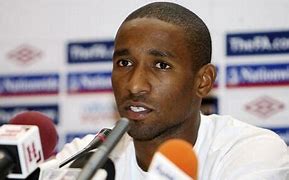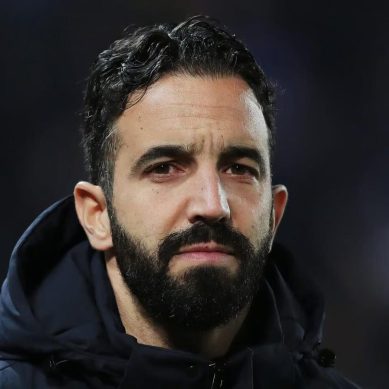
“I don’t want my first job to be when I’m 70,” laughs Jermain Defoe.
It’s a joke, but not really.
There’s frustration behind it. Anxiety. And the sense that 13 months after he called time on a 22-year playing career, he might be embarking on an even tougher battle.
“When I look at the numbers of black coaches in the game, like 4.4 per cent, that’s the only thing that makes me think, ‘Am I wasting my time?’,” he says, the exasperation clear in his voice.
“Why am I any different to Sol Campbell, Andy Cole, Dwight Yorke, Ian Wright, Les Ferdinand, John Barnes? Why am I any different to these players and legends that I looked up to as a kid? Because at some stage, they would have been in my position thinking, ‘I’ll do my badges and get an opportunity because I’ve played at the top of the game’. But it’s not happened for them.”
The Athletic’s plan was to speak to 40-year-old Defoe about his transition from player to coach, a journey he started after retiring in March 2022. He left his playing career behind and began a role in Tottenham Hotspur’s academy, supporting the under-18s manager Stuart Lewis, getting a taste of what life is like as a football coach.
“The transition has been quite smooth because I knew about the Tottenham thing waiting for me,” says Defoe. “But it’s still been difficult because when you’ve been playing for 22 years and all of a sudden you get up and you’re not getting that feeling, not getting that buzz… I’m still putting my boots on and I’m coaching, which is obviously the nearest thing you get to playing, but you can’t replicate that feeling of walking out the tunnel on a Saturday afternoon. It’s been tough.”
After playing “800-odd games” – his calculation – Defoe says retiring was “probably the hardest thing” he’s ever had to do. What does he miss about it?
“Everything,” he says. “The changing rooms on a day-to-day (basis), preparing for games, having that focus and scoring goals – there’s no better feeling. It’s something that you just cannot describe. Something I’ve always loved doing. Something I craved throughout my career. Something I always wanted to master. I didn’t want to just be good at it: I wanted to master it.
“When you finish playing it’s like, ‘Okay, when am I going to get that buzz again, hear that noise?’. I miss everything about it.”
He says he retired, aged 39, for several reasons. A few months earlier, he had left Rangers on a high, having helped deliver what he calls “one of the most important league titles in the club’s history”. His return to Sunderland on a short-term contract was an emotional one. He’d enjoyed two special years and had formed the closest of bonds with six-year-old Sunderland fan Bradley Lowery, who died of neuroblastoma (a rare type of cancer) in 2017.
But Defoe’s return wasn’t the one he’d hoped for. “Before I went back to Sunderland, I hadn’t played for about eight weeks, so I wasn’t match-fit. I was trying to get up to speed but it was quite difficult. When you’re not playing and you’re just training it becomes harder. I was frustrated because I was told I was going to play and try to help the team get promoted, which they did anyway. They didn’t need me, to be honest. But it just wasn’t happening. I wasn’t playing.
“And I felt like I was blocking the path for the young forwards at the club coming through just by being there. It wasn’t about the money; the contract was just a basic one. I just wanted to go back and play football until the end of the season and then see what happens. Other clubs offered me two-year contracts, but I was like, ‘Nah, I want to go back to Sunderland and probably just finish there’. But when I wasn’t playing and my body was like… my back, my Achilles, hamstrings were playing up. I thought it was the right time to retire.”
Defoe enjoyed talking to younger forwards at Sunderland and Rangers, taking them through drills and sessions he felt had helped him to become so prolific. It came naturally to him. He enjoyed it. When the Covid-19 pandemic hit Scotland, Defoe started getting his coaching badges. He has now completed his UEFA B Licence and is starting his A and Pro Licence together.
As a youth player at West Ham, he would eat his lunch as fast as possible so that he could go to the indoor hall on his own and practise finishing. Now, he’s trying to elicit that same passion and dedication from others.
On his podcast, Outside the Box, Defoe has documented his move into coaching. In one episode, he even revealed he knows who he wants to be his assistant when the time comes. But what kind of manager does he see himself becoming?
“You’d be strict,” he says. “But I just want my players to understand how fortunate they are to be in a position to come to training every day. They should come to training and enjoy it with a smile on their faces and then take that into the game on a weekend.
“And I would always want to train with intensity. Don’t waste a training session, because the reason you train is to get better, even if it’s one per cent. That’s how I always approached it – every day enjoy yourself, work hard and just make sure you’re ready for the games.”
- The Athletic report











